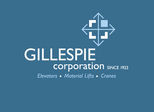- Glenn Siegel
- Jun 7, 2019
In a music world that values flash and technique, artists like pianist Ran Blake, who emphasize texture and depth above all else, are easy to overlook. In our spectacle-addled environment, one dense chord, simultaneously satisfying and unsettling, unfurling slowly over time, is an outrageous, even revolutionary, act.
Ran Blake returned to his hometown of Springfield, Massachusetts on June 1 to perform with vocalist Dominique Eade in the beautiful Robyn Newhouse Hall at the Community Music School of Springfield. The concert, Blake’s first in the city in 55 years, concluded Pioneer Valley Jazz Shares’ 7th season.
Over two sets of glorious risk taking, Blake and Eade wove startling threads through some familiar themes. The Great American songbook, (“Old Devil Moon,” “On a Clear Day,” “Tea for Two”), Americana (“On Top of Old Smokey,” “Give My Love to Rose,” “Goodnight, Irene”), a string of Monk melodies and a string of songs associated with Stan Kenton, all floated by in various forms of abstraction; sometimes as discreet pieces, sometimes in medley.
Eade began Bob Dylan’s “It’s Alright, Ma (I’m Only Bleeding)” alone. It foregrounded her creativity and craft and gave us a chance to reflect on the poetry of the piece:
Disillusioned words like bullets bark As human gods aim for their mark Made everything from toy guns that spark To flesh-colored Christs that glow in the dark It’s easy to see without looking too far That not much is really sacred
Donning sunglasses, Blake sat grinning while he rested his head in his hand. When he finally entered, the crowd of 80 burst into applause.
Most duos of this kind are configured as singer with piano accompaniment. The concert I heard with Eade and pianist Miro Sprague at the Northampton Jazz Festival last year was like that. Saturday’s concert featured a pair of equals. During the sound check, and right through the first set, Eade kept asking for her voice to be turned down in the mix. This was not deference to age or the fact Blake was her mentor at the New England Conservatory. These two instrumentalists were engaged in improvised dialogue with no figure or ground. They took chances, tried to surprise each other, hit notes that were right and wrong.
June 1st was declared Ran Blake Day in Springfield, and we surprised him with a signed proclamation from the mayor. Born in Springfield in 1935, Blake was educated at School Street School, Classical Junior High and until the 11th grade, Classical High School. His mind was sharp and his playing was focused, and although a drive around Springfield revealed his favorite city hangouts long gone (Classical HS is now condominiums), he seemed genuinely pleased to be back.
It is hard to overstate his importance to the music. He is a decorated veteran, recognized with NEA and Guggenheim Fellowships, and a MacArthur ‘Genius’ Grant. As the long-time director of the school’s Third Stream Department (now called Contemporary Improvisation), he has taught generations of NEC students (Marty Ehrlich, John Medeski, Matthew Shipp, James Falzone and Don Byron, among scores of others.) In addition to many fine solo and ensemble recordings (All That is Tied is a recent favorite), Blake has an illustrious history of working with female vocalists, including Jeanne Lee, Sara Serpa, Christine Correa, and Dominique Eade.
Eade belongs to a small group of jazz vocalists who can both command the stage and mix it up with her bandmates. Her voice is clear, her presence is palpable, and her fearlessness gave the evening drama and weight. Her wordless work on the Monk pieces revealed a jazz musician who happens to sing. Eade is also creating a legacy as an educator at NEC, where she has taught since 1984. Former students include Luciana Souza, Kate McGarry, Lisa Thorson, Patrice Williamson, Aoife O’Donovan, Roberta Gambarini, and many others.
Singing with Blake is neither easy nor straightforward. His voicings, the way he uses pedals, his phrasing, are all distinctive, idiosyncratic and whimsical. Like a good yoga instructor, he makes you bend in ways you didn’t think possible. But the rewards, in terms of expressive range and depth of emotion, were readily apparent to the privileged present.



























